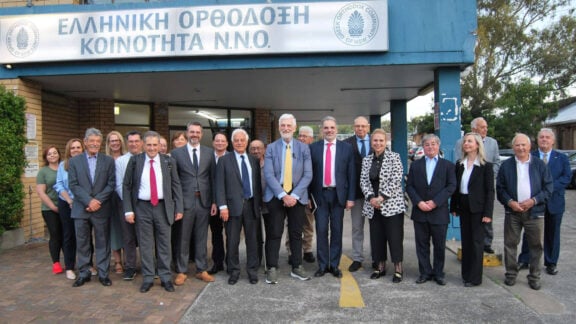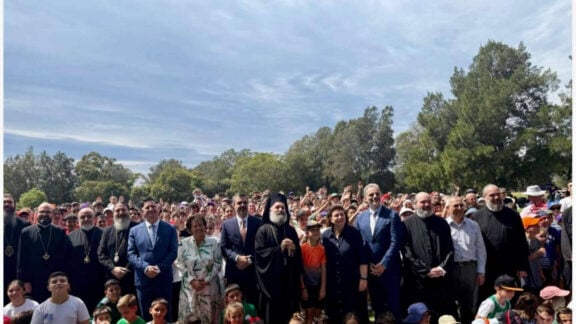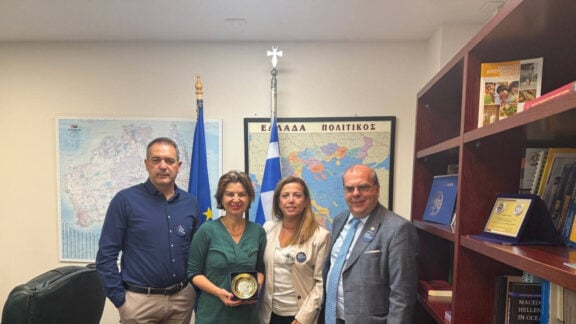Last week was very good for Muslim citizens of the Commonwealth. Television personality Waleed Aly became the first non-Anglo person to ever win the Gold Logie, the highest distinction in the Australian media world. “Do not adjust your set,” the presenter joked, commencing his acceptance speech, in which he recognised the significance of his win for Australians who share his background (he’s a Sunni Muslim of Egyptian origin) – namely a man he referred to as ‘Mustafa’, who has to go by an alias, rejecting his ethnicity, in order to land jobs in television.
Outside the TV ecosystem, in another part of the Commonwealth, another Muslim gained a much more significant victory: Sadiq Khan became the Mayor of London, the third since the introduction of the role in 2000, defeating his opponent by a landslide. The role, one of the most important in UK politics, has been held in the past by Ken Livingstone and Boris Johnson, two very prominent figures, who ‘monetised’ their popularity by landing the mayorship.
Khan, on the other hand, was relatively unknown; the son of a bus driver Pakistani immigrant, he worked as a human rights lawyer before pursuing a career in politics as an MP of the Labour Party (and a member of Gordon Brown’s cabinet).
His win has all the marks of a historic achievement, heralding a new era for Europe, a continent coping with a rising wave of nationalism and Islamophobia. Khan himself, as a mayor, will be the one who will have to lead the city in the aftermath of a possible ‘Brexit’ should the UK population decide to quit the European Union in the referendum to be held in June.
But in the wake of the refugee crisis and the terrorist attacks, Khan’s victory comes as an effective way of silencing those who believe Europe is under Muslim threat. He is proof of the kind of diversity that has made London a cultural and economic metropolis, and in a way calls for the British establishment to acknowledge what the population of London has effectively proven – that long-gone are the days of the rule of a white, privileged class.
The rest of Europe should take notice. This kind of diversity has been part of the European social fabric for longer than the political elite in the continent has cared to admit and it is only natural that it is rising to power at last and influencing the outcome of the conversation.
Europe itself is divided, to say the least. In her message to celebrate Europea Day on 9 May, the EU’s foreign minister, Federica Mogherini, admitted that the EU is facing an existential threat. What is actually threatened is the concept of Europe as a white, Christian continent.
NON-WHITE, NON-CHRISTIAN, ALL PROGRESSIVE
In Greece, this fear has been part of the discourse for quite some time. The arrival of refugees has sparked the reactions of people who see foreigners as a threat to a national identity long thought to have been preserved intact throughout the ages. Greeks are schooled to believe that their line of ancestry originates from ancient times, opting to neglect the mixture of ethnicities that has, in fact, been part of the country’s fabric.
It is telling that even the usually moderate Archbishop Ieronymos, in an interview regarding the refugee crisis, expressed concerns on how the arrival of the asylum seekers would affect what he called “our little neighbourhood”. Putting conditions on love and acceptance may not be the most Christian thing in the world, but this is beside the point. The point is whether Europe – and the western world – can understand that it is more than its respective “small neighbourhoods”.
Khan is the embodiment that a non-white, non-Christian Europe is not only achievable, it has already happened and it is more progressive than one might think. An advocate of human rights and civil liberties, the new mayor has issued warnings on the “insidious” practice of women sporting hijabs and niqabs, at the same time defending their freedom to choose how they express their faith and cultural identity. Critics of multiculturalism see Muslims as a threat to democracy, but it is democracy that has allowed Khan to rise to power, with a message of reason and pragmatism, the embodiment of the virtues of a multicultural society, one in which the son of a bus driver can become mayor. If anyone should feel threatened by him it is the hate-mongering extremists – and it is no coincidence that Khan has had a fatwa issued against him for supporting gay marriage as an MP. By showing what a member of a multicultural society can achieve, Khan is offering the most effective response to extremism.
A WAY TO SILENCE EXTREMISM
Similarly, this is why Waleed Aly has gained much-deserved praise. His “ISIL is weak” editorial segment on the aftermath of the terrorist attacks in Paris has been one of the most powerful and empowering offerings in the public sphere. Responding to the rhetoric of fear with reason and sangfroid, he struck a significant blow against the image of jihadism.
It is for this reason that he has been under attack by people who make a living on the rhetoric of fear. Australian Liberty Alliance’s New South Wales candidate Kirralie Smith, for example, who has been linked to divisive conservative figures Cory Bernardi, George Christensen and Dutch politician Geert Wilders, targeted Aly during a press conference.
Smith is one of the politicians waging the anti-halal campaign, insisting that the practice is an attack on Australian values and that halal products are used to fund Islamic extremism, despite all this being proven to be incorrect.
She is also part of the all-white Anglo-Saxon establishment that is reluctant to acknowledge that Australia has changed in the past decades. With the election soon to bring a new mix of MPs in both houses of parliament, it will be interesting to see how the people’s representatives will actually be representative of the country’s demographics.
If Khan’s victory can teach anything to this part of the Commonwealth, it is that the time has come for more people of the various communities that form the Australian social fabric to claim the spotlight and pursue an active role in leading the country.
Much to the horror of the anti-halal ignorants, it is people like Waleed Aly that will lead the public discourse on this. After all, before becoming a TV personality, Aly was the former spokesman for the Muslim Council of Victoria and he has gained recognition as an academic specialising in terrorism and politics. He’s also a much better orator than most of his opponents. And that’s something to talk about.









